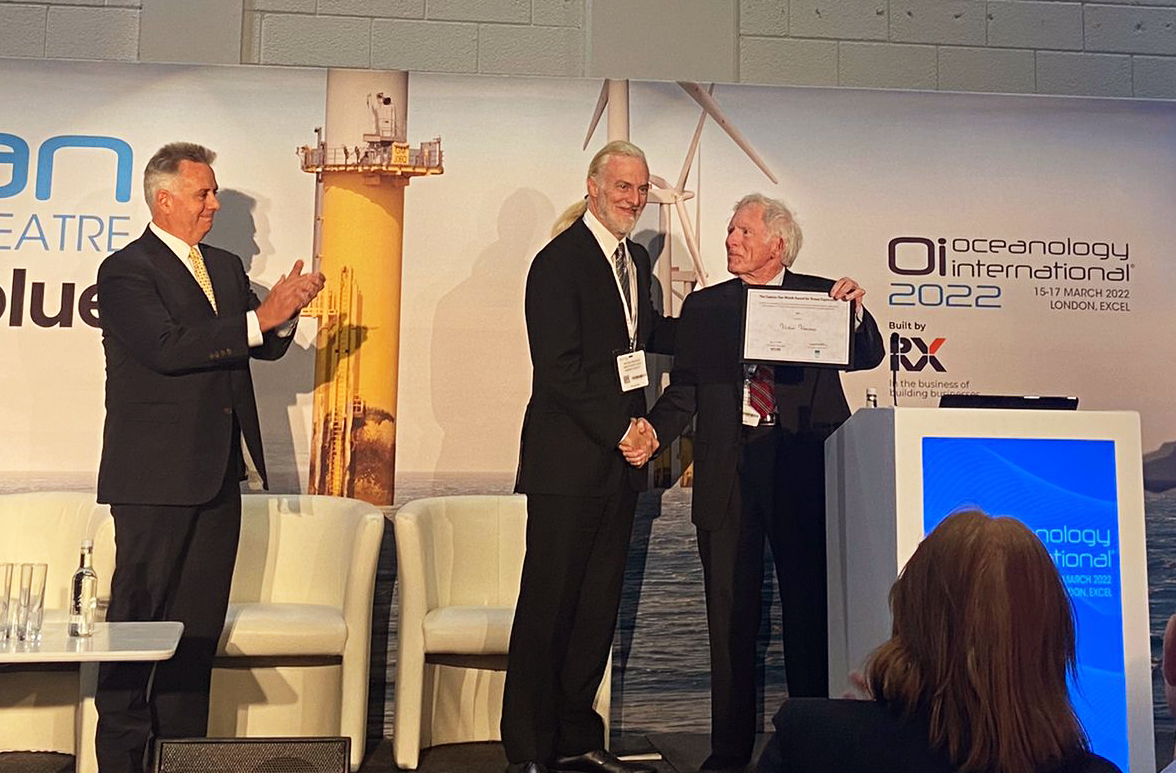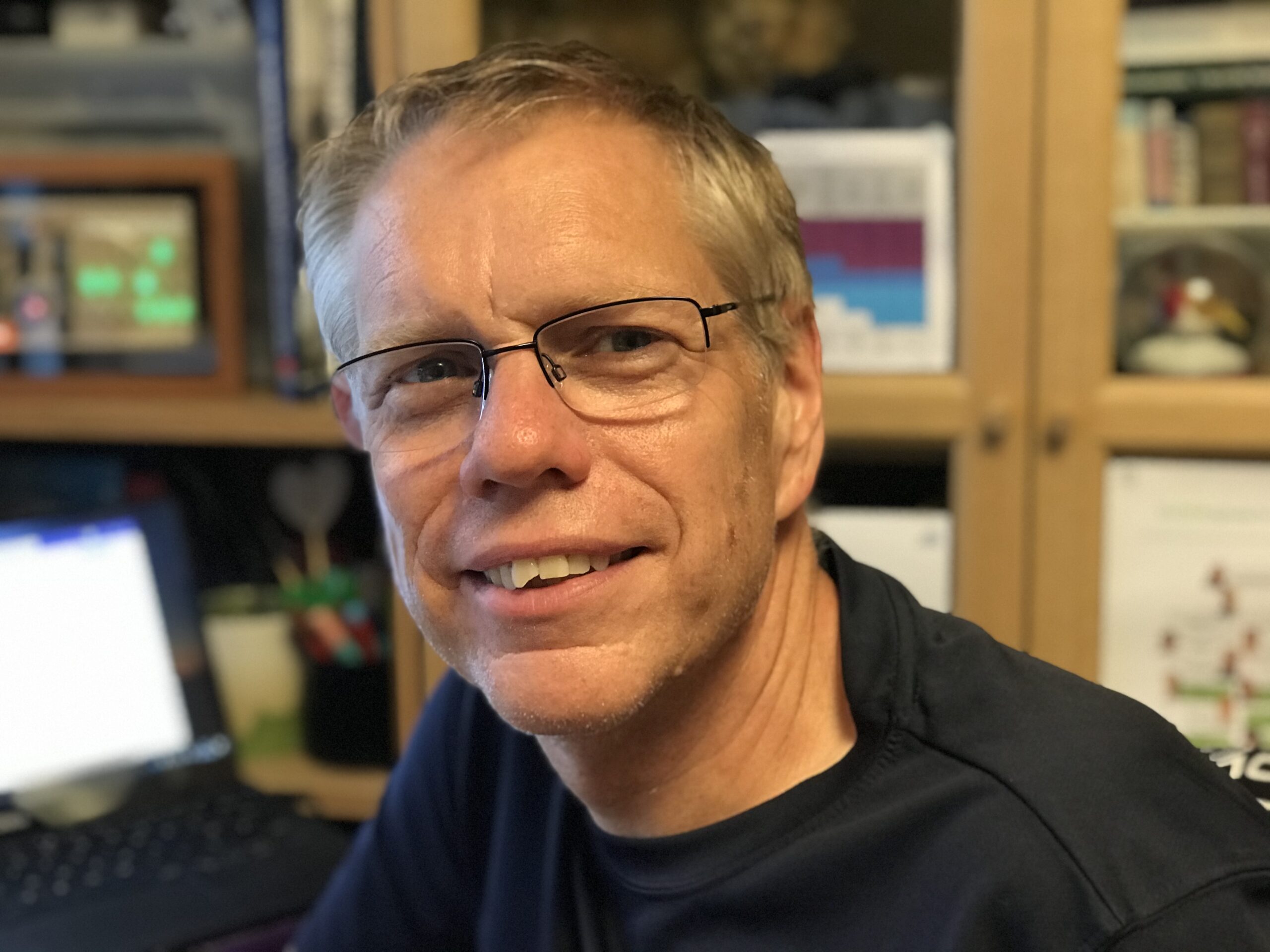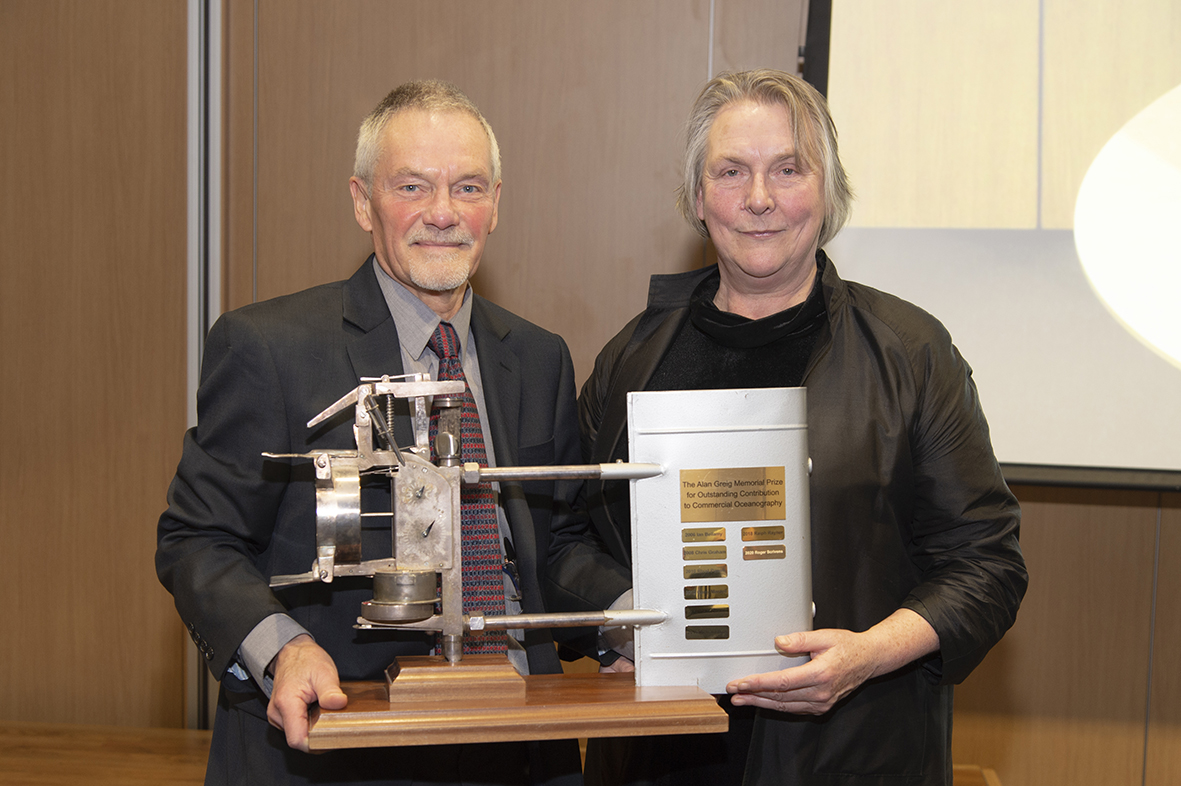The Society for Underwater Technology’s (SUT) 9th International Offshore Site Investigation (OSIG) Conference “Innovation Geotechnologies for Energy Transition” held last week (12-14 September) at Imperial College London, saw the award of the inaugural Mick Cook Award for Significant Contribution to Marine Site Investigation and Characterisation to Tor Inge Tjelta, who received a prize of £1000, a trophy and a certificate. The conference attracted over 600 delegates from 35 countries and featured 250 papers presented over the three days with Tor Inge Tjelta speaking at the packed Conference Dinner at the Natural History Museum.
Looking back to the announcement of the winner, Mick Cook said: “Having had a wonderful and fulfilling career in which I have worked with some exceptional people, I was keen to give something back to say thank you for all the good times I have had and to all the good people I have encountered.
“The Mick Cook Award is just that and is aimed at recognising ‘Significant contribution to marine site investigation and characterisation with a focus on geophysics and geotechnical engineering’. The inaugural winner of the award, Tor Inge Tjelta, is an extremely worthy recipient, having contributed hugely to our industry over the past 40+ years.”
Tor Inge Tjelta’s response several days after accepting the Award still demonstrated his surprise: “Thank you all for this nomination and award. It will, perhaps more than anything, continue to inspire me for the future. And when I see who are on the committee, I consider it an absolute honour and can only say thank you very much again to you all. It came as an utter surprise and I’m completely stunned, and speechless. Thank you!”
Tor Inge Tjelta’s Mick Cook Award recognises his many creative contributions to offshore site investigations and geotechnical engineering. The SUT’s Award panel appreciated first his integrated geological, geophysical and geotechnical approach for complex settings ranging from hazardous Caspian Sea conditions to the Dogger Bank glaciotectonic sequences.
The panel noted additionally his pioneering role in advancing sampling, in-situ and laboratory testing techniques, his fundamental role in developing deep skirted Gravity Base solutions and his effective championing of suction caisson pile technology. The Panel also applauded his exemplary role in proving these novel developments through instrumented field testing and monitoring, and advanced analysis.
The Award will be run annually and is open to all working in the field of marine site investigations and characterisations globally. The call for nominations for the 2024 award will open in June 2024. The 10th OSIG Conference will be held in 2027 – in years without an OSIG Conference the Mick Cook Award will be made at the SUT’s AGM in early December.
Background to the Mick Cook Award
Mick Cook, a long-standing member and former Chair of the OSIG Committee, as well as being a Past Treasurer and Council Member of the SUT, explained the reasons behind the new SUT Award:
“From my own lengthy and rewarding career and involvement with SUT’s OSIG Committee I know the value and importance of peer-recognition of achievements and contributions through an International Award can make to both individuals and industry.
“I am delighted to be able to sponsor this Award and support all those who contribute to the field of geotechnics and geophysics from yesterday, today and tomorrow.”
As SUT’s CEO, Cheryl Burgess explained when the inaugural award was announced: “The SUT and members of the OSIG Committee are excited by Mick’s generosity; which has been welcomed by some of the sector’s key stakeholders and award panel members – Neil Morgan, Professor Richard Jardine, and Andy Hill.”
Neil Morgan, Chair SUT, OSIG Committee and Lloyd’s Register
Principal Geotechnical Engineer, Technical Support Office, Marine & Offshore said:
“The launch of this award is welcome news. It will encourage those working in the offshore geoscience industry to develop what will be needed in the future. The energy transition means we will see ever-increasing demands for marine site investigation and characterisation. This will be against a background of shortages of skilled resources and equipment to perform the work and interpret the results.
“The resource constraint means getting the maximum value from data will be essential and it will also be essential that the data acquired can be applied to large scale developments with rapid project timelines. Innovation and creativity will be needed to ensure the offshore geoscience community fulfils the future needs of offshore energy stakeholders in a reliable and cost-effective way.”
Richard Jardine FREng, FICE, FCGI, Professor of Geomechanics, College Proconsul, Imperial College London explained
“The creation of a new SUT Award, funded by Mick Cook, to recognise each year a particularly Significant Contribution to Marine Site Investigation or Characterisation, covering the broad disciplines of Geophysics and Geotechnics represents a highly encouraging, positive and timely development.
“Mick has made his own important contributions through a long career in these fields, taking part in developments that are proving crucial in realising successfully the imperative international drive towards low cost, low carbon, energy.
“Mick’s unstinting work with the SUT Offshore Site Investigations and Geotechnics (OSIG) committee, their guidance notes, short courses and internationally leading conferences has been one of the factors behind the UK’s excellence and prominence in the practical, industrial, scientific and academic aspects of geotechnical engineering for sustainable offshore energy production.”
While Andy Hill, Marine Geohazards Technical Authority – S&ORA, BP America added
“News of this award is very timely as the importance in the delivery of efficient and effective Integrated Offshore Site Characterization has rarely been as important as it is now.
“Mick Cook has been directly involved in the development of offshore site investigation rationale over the past forty years in projects around the world. For much of this time he has been involved with the Offshore Site Investigation Committee of the SUT and a driving force behind a number of its outputs – most recently the Guideline Document for the Planning and Execution of Geophysical and Geotechnical Ground Investigations for Offshore Renewables which is an important resource in supporting the development of staff entering this sector.
“This award will go further in encouraging staff to make their mark in the industry over the next decade by continuing to push technology and technique forwards.”




